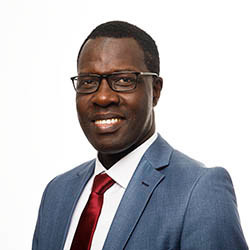Senegal
The Context
Senegal, on the western seaboard of Africa’s Sahel region, spans 196,722 km² and had an estimated 15.3 million people as of 2016.
After a decade characterized by slow economic growth, Senegal’s economy has surged, achieving 6.5 per cent growth in 2015.
Mining, farming and fishing are the main economic activities.
Rapid population growth facilitates economic development but also presents a challenge: 20 per cent of young people are unemployed, spurring a rural exodus towards the capital Dakar, other cities, and abroad.
Almost 40 percent of the population lives in rural areas, where the poverty rate was 57.3 per cent, more than twice that of Dakar.
Senegal imports almost 70 per cent of its food and people go hungry even though 60 per cent of the workforce are engaged in food crop production. Yet only 65 per cent of Senegal’s 3.8 million hectares of arable is farmed and 30 per cent of irrigable land used. Small rainfed subsistence farms are the norm.
Farm productivity is held back by:
- inadequate or irregular rainfall;
- soil degradation;
- lack of good-quality seeds and fertilizers;
- use of traditional techniques and lack of technical support services;
- lack of access to finance;
- poor infrastructure that limits access to markets or water;
- unsuitable land tenure structures;
- inadequate integration into poorly-organised value chains and an underdevelopedfood processing industry.
Women produce 80 per cent of the country’s food, so empowering them and enhancing their productivity is critical to developing agriculture and rural areas.
The Strategy
In Senegal, IFAD loans help sustainably increase food security and smallholder incomes and create permanent employment for rural people, particularly women and young people.
IFAD-funded projects help smallholders’ and their organizations gain better access to farm inputs and services, appropriate technologies and markets.
Activities focus on the development of sustainable value chains and the integration of women and youth into economic activities.
IFAD also helps rural people learn how to set up and run businesses.
Country Facts
During 2015, Senegal’s economy grew by 6.5 per cent, outpaced in West Africa only by Côte d’Ivoire.
Rural women are almost 70 per cent of Senegal’s workforce and produce 80 per cent of the country’s food.
Poverty is more widespread in rural areas, where 75 per cent of poor households live.
Since 1979 IFAD has supported 16 programmes and projects in Senegal, investing US$216.4 million and directly benefiting more than 455,000 rural households.


